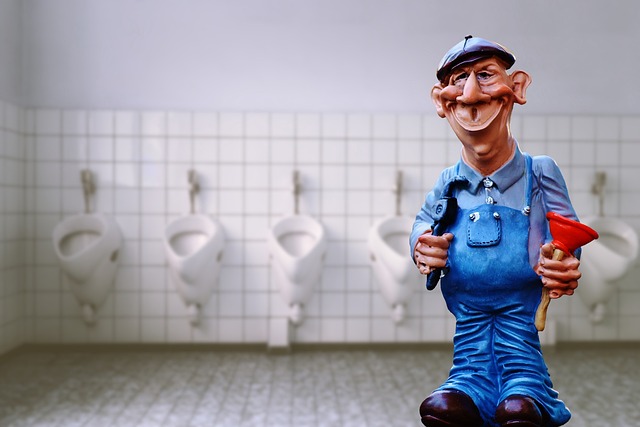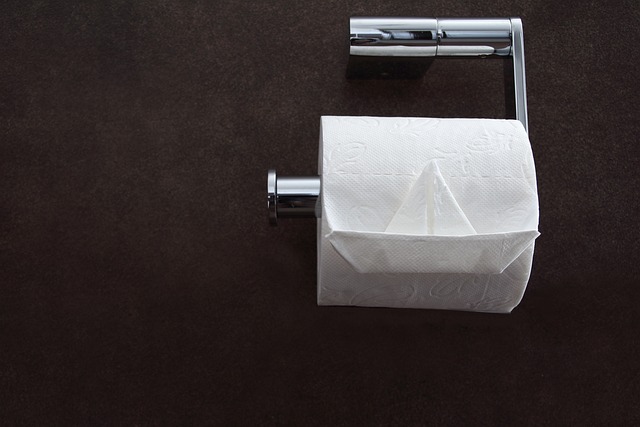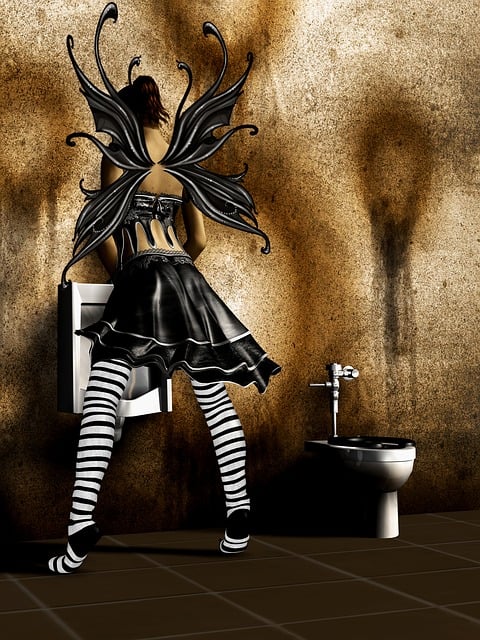Toilet clogs often result from non-biodegradable items, grease, or soap scum building up in pipes. Preventative measures include mindful drain usage, regular plumbing maintenance, and using drain covers. Simple unclogging methods involve baking soda and vinegar or a plumbing snake. Commercial products can help but should be used cautiously. Regular cleaning with hot water, biodegradable chemicals, and careful flushing prevent future clogs.
Toilet clogs are a common household frustration. Understanding the science behind them is key to preventing and resolving these pesky issues efficiently. This article explores the common causes of toilet clogs, from improper disposal of items to natural blockages, and provides practical solutions. Learn effective unclogging techniques and discover preventive measures to keep your toilet flowing smoothly. Say goodbye to clogs with our expert tips on how to unclog a toilet.
- Understanding Toilet Clogs: The Common Causes
- Unclogging Techniques: Quick and Effective Solutions
- Preventive Measures: Keeping Your Toilet Free from Clogs
Understanding Toilet Clogs: The Common Causes

Toilet clogs are a common household issue that can leave you in a bind. Understanding the root causes is the first step in learning how to unclog a toilet effectively. The primary culprits behind these obstructions are usually non-biodegradable materials, like paper products, personal care items, and sanitary products, which don’t break down easily and tend to accumulate in the pipes over time. Other common causes include built-up grease, soap scum, and even improper disposal of certain household items.
These substances can stick together, forming a dense mass that blocks the water flow and creates a clog. Once a blockage forms, it can quickly escalate, leading to a running toilet or worse. Knowing these causes empowers you to implement preventive measures, such as being mindful of what goes down the drain, using drain covers, and regularly maintaining your plumbing system.
Unclogging Techniques: Quick and Effective Solutions

When faced with a clogged toilet, there are several quick and effective unclogging techniques to try before resorting to more drastic measures. Start by pouring a cup of baking soda down the drain followed by a cup of white vinegar. This combination creates a fizzing reaction that can help break up the clog. Let it sit for 15-30 minutes, then flush with hot water.
For persistent clogs, using a plumbing snake or auger is an effective solution. Insert the tool into the drain and rotate to break apart any obstructions. If these methods don’t work, consider using commercial unclogging products, but be cautious as some can be harsh on pipes. Regularly cleaning drains with hot water and avoiding flushing non-biodegradable items are preventive measures that can save you from future clogs.
Preventive Measures: Keeping Your Toilet Free from Clogs

To prevent toilet clogs, regular maintenance is key. Start by flushing an inch or two of hot water down the drain daily to clear out any built-up grease or debris. Avoid pouring grease, fats, or cooking oil into the sink or toilet, as these can solidify and cause clogs over time.
Additionally, use a drain cover or trap to catch larger particles before they enter the pipes. For household chemicals, opt for biodegradable alternatives whenever possible, and be mindful of what goes down the toilet—never flush non-biodegradable items like wipes, sanitary products, or paper towels. Regularly cleaning your pipes with a mixture of baking soda and vinegar can also help prevent clogs by breaking down residue naturally.
Toilet clogs are an annoying household issue, but understanding the science behind them can empower you to prevent and resolve them effectively. By identifying common causes like foreign objects, excessive toilet paper, or water pressure issues, you can implement preventive measures such as regular cleaning and smart usage habits. If a clog does occur, knowing quick unclogging techniques ensures you’re prepared with simple solutions. Following these practices will keep your toilet running smoothly, saving you time and money on costly plumbing services. Remember, proactive care is key to avoiding future clogs, making your bathroom a hassle-free space.
